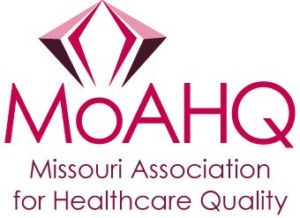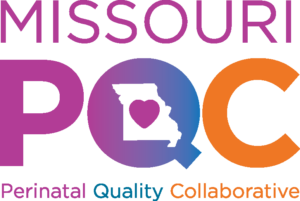Tuesday, Sept. 17
9:15 a.m. – Registration
10 a.m. – Welcome and MHA Update
10:15 a.m. – The Joint Commission Quality & Safety Update
Overview
Attendees will receive an overview of the most frequently cited standards from The Joint Commission, as well as those standards most frequently associated with higher risk for patient safety. Participants also will learn about important changes in CMS validation surveys, notification of survey events and the complaint process. Finally, individuals will learn about new voluntary certifications in health care equity and sustainable health care.
Learning Objectives
- identify the 10 most challenging TJC standards experienced by health systems and hospitals in 2024
- explain survey process and accreditation procedure updates impacting survey activity in 2025
- review recently launched new/revised standards and certification programs
Mark Crafton
Executive Director, Strategic Alliances
The Joint Commission
Bolingbrook, Ill.
11:30 a.m. – Lunch and Networking
12:45 p.m. – Establishing a Road Map for Authentic Community Engagement
Overview
Community engagement, defined as the various methods health care organizations use to connect, engage, and collaborate with individuals who have direct experience, aims to work jointly to enhance health care and achieve favorable health outcomes. However, many well-intentioned initiatives lack diversity, fail to achieve significant outcomes and struggle to establish authentic power-sharing dynamics. Conversely, when executed effectively, community engagement fosters trust, promotes health equity, improves organizational efficiency and contributes to the overall well-being of communities.
Learning Objectives
- identify the most impactful opportunities to advance CE as a quality improvement strategy and the current barriers to doing so
- explore stakeholders’ (people with lived experience and health care) perspectives and opinions about what constitutes the ideal future state of CE in health care
Victor Murray
Senior Director of Community Engagement and Capacity Building
Camden Coalition
Camden, N.J.
2 p.m. – Energy Break
2:20 p.m. – Do Tank Adverse Drug Event Workshop
Overview
During this interactive session, groups will use improvement methods to illustrate various layers of defense and identify vulnerabilities in the drug administration process. Groups will identify how strengthening the multiple layers can reduce the risk of failures or errors slipping through the system.
The topic of this session was strategically designed to precede a keynote session that is scheduled to be held during the MHA Annual Convention, in which RaDonda Vaught will share her experience throughout a life-changing drug administration error. Don’t miss this directed opportunity to proactively evaluate your workflows in advance of our November Convention!
Learning Objectives
- identify vulnerabilities in the drug administration process
- complete the Swiss cheese model diagram
Adam Kohlrus
Chief Health Strategist and Partner
do tank
Chicago, Ill.
4:30 p.m. – Compass Honor Award
4:45 p.m. – Adjournment
5 p.m. – Social
Wednesday, Sept. 18
7:15 a.m. – Registration/Breakfast
8 a.m. – State and National Quality Update
8:30 a.m. – Leveraging IT and Artificial Intelligence to Improve Care Delivery
Overview
As the pace of interest in and development of health care-related generative AI accelerates, there’s a mix of hope and skepticism from providers and patients. Much discussion to date has centered on potentially exciting developments, such as automatically generating formatted clinical notes from listening to interactions between clinicians and patients, chatbots to answer questions from patients, and decision support for clinicians, among other potential applications. In this session, members from the expert panel will share insights, experiences and recommendations for health care genAI.
Learning Objectives
- understand new and evolving terminology, and the role quality leaders play in deploying new technologies
- differentiate operational and patient-centered AI interventions, and when they are most successfully deployed
- learn strategies to integrate IT staff, processes and solutions into your clinical quality improvement priorities
Moderator:
Jaclyn E. Gatz, MPA, CHEP, LSSGB
Senior Vice President of Quality, Safety and Research
Missouri Hospital Association
Panelists:
Thomas Selva, M.D., FAAP, DABPM-CI
Chief Medical Information Officer
Tiger Institute for Health Innovation
Columbia, Mo.
Tom Jones, MBA, CHEP, LSSGB
Chief Information Officer/Emergency Preparedness Officer
John Fitzgibbon Memorial Hospital, Inc.
Marshall, Mo.
9:45 a.m. – Energy Break
10:05 a.m. – Creating a Safety Culture That Drives Accountability and Highly Reliable Outcomes
Overview
In this interactive session, participants will discuss the lingering impacts of the pandemic on workforce optimization and clinical outcomes. Methods to promote the psychology safety required to achieve and sustain a culture of safety, transparency, and accountability will be reviewed. Applying the characteristics of a high reliability organization, specific tactics to achieve optimal clinical outcomes will be discussed. Participants will examine the reasons behind the undesired care variation that leads to patient harms. Also, strategies to increase accountability to reduce care variation will be explored.
Learning Objectives
- describe the importance of creating a culture of safety, transparency and accountability in the quest of zero preventable harm
- list the five characteristics of an HRO and how they promote safety awareness and safety event prevention
- address issues of accountability related to undesired care variation
Vikki Choate
Principal I Clinical Excellence
Huron
Mount Dora, Fla.


















